DIANE'S CORNER ... Celebrate Cheetah Day

They are mother natures precision, high-performance machine, designed to do one job and do it with incredible skill and effectiveness. It can accelerate faster than a Ferrari, tearing up the ground from 0-75 mph in just 3 seconds, and comes with a self-grown paint-job that would make the fanciest muscle car blush with envy. That’s right, we’re talking about the Cheetah, and International Cheetah Day celebrates these incredible animals while raising awareness about their threat of extinction.
History of International Cheetah Day
As founder of the Cheetah Conservation Fund, Dr. Laurie Marker chose to commemorate Khayam, a cheetah she raised at the Wildlife Safari she ran in Oregon, by establishing December 4th as International Cheetah Day in his memory.
Khayam served as part of an important experiment determining whether or not captive Cheetahs can be taught to hunt and live in the wild on their own again. After a trip to Namibia, the experiment was proven successful, though she and Khayam returned home after observing local hunters eliminating wild cheetahs as a threat to their livelihood.
Driven by this encounter she moved to Namibia to help heal the rift between farmers and the majestic cheetah and founded the CCF in 1990. Cheetahs are incredible animals, being the fastest land mammal in the wild today.
There are only 8,000 of these creatures left in the wild today, a number that leaves them as Africa’s most endangered feline. Cheetah’s hold their position as world’s fastest land mammal thanks to some tricks of evolution that have perfectly adapted them for high speed.
Their full running speed is so fast that their feet only touch the ground once every 6-7 meters, and their muscular tail helps to steer them like a rudder at these high speeds. Needless to say, once a cheetah has prey in their sites, there’s no running away.

Word of the Day
| |||
| Definition: | (noun) A product made during the manufacture of something else. | ||
| Synonyms: | spin-off | ||
| Usage: | Whey is a byproduct of the cheese production process. | ||
Idiom of the Day
talk to the hand— A rude interjection meant to interrupt and dismiss what another person is saying. (Sometimes written or spoken in longer forms, such as, "talk to the hand, because the face isn't listening," or the like.) |
This Day in History
Lebanon Hostage Crisis: Last US Captive Released after 7 Years (1991)
After reporting from Vietnam as a war correspondent, American journalist Terry A. Anderson became chief correspondent for the Associated Press in Lebanon. In March 1985, he was abducted from a Beirut street by Shiite Hezbollah militants retaliating against the US for supplying Israel with weapons. Held with other American hostages taken at around the same time, Anderson remained in captivity for nearly seven years and was the last to be released.
Francisco Franco (1892)
A career army officer and skillful leader, Franco was appointed the Spanish army's chief of staff in 1935. The next year, he joined the military uprising that precipitated the Spanish Civil War and became the leader of the Nationalist forces bent on overthrowing the republican government. Over the next few years, a bloody war was waged. The Nationalists emerged victorious, and from 1939 until his death in 1975, Franco served as virtual dictator of Spain.
Siaosi Tupou I Day
| King George Tupou I, also known by his Tongan name of King Siaosi Tupou I, was the first king of the Pacific island nation. He took on the title on December 4, 1845, and the date is a Tongan national holiday. Tupuo's rule was marked by a number of landmark events. He abolished serfdom and introduced the nation's first written laws. He also opened the country's first parliament and introduced its first constitution. Tonga honors King Tupou I for establishing much about their country, both good and bad, that still distinguishes it today. |
'Siberian unicorn' walked Earth with humans
A giant rhino that may have been the origin of the unicorn myth survived until at least 39,000 years ago - much longer than previously thought. Known as the Siberian unicorn, the animal had a long horn on its nose, and roamed the grasslands of Eurasia. New ...
READ MORE:
READ MORE:
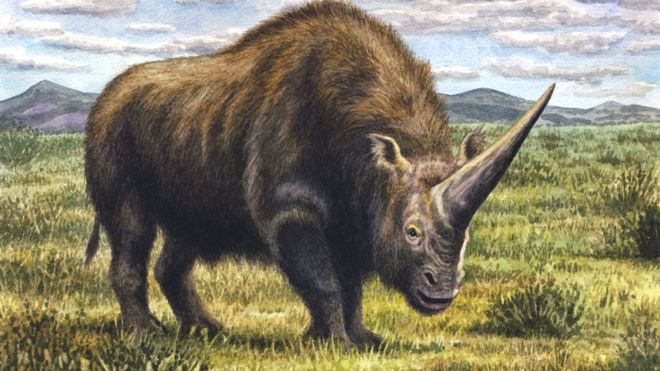
'Siberian unicorn' walked Earth with humans
1791 - Britain's Observer newspaper was first published.
1918 - U.S. President Woodrow Wilson set sail for France to attend the Versailles Peace Conference. Wilson became the first chief executive to travel to Europe while in office.
1945 - The U.S. Senate approved American participation in the United Nations.
1961 - Gene Chandler's "Duke of Earl" was released.

1965 - The U.S. launched Gemini 7 with Air Force Lt. Col. Frank Borman and Navy Comdr. James A. Lovell on board.

1978 - Dianne Feinstein became San Francisco's first woman mayor when she was named to replace George Moscone, who had been murdered.

1991 - Pan American World Airways ceased operations.

1991 - Paula Abdul was awarded a star on the Hollywood Walk of Fame.

DAILY SQU-EEK
1965 - The U.S. launched Gemini 7 with Air Force Lt. Col. Frank Borman and Navy Comdr. James A. Lovell on board.
1978 - Dianne Feinstein became San Francisco's first woman mayor when she was named to replace George Moscone, who had been murdered.
1991 - Pan American World Airways ceased operations.
1991 - Paula Abdul was awarded a star on the Hollywood Walk of Fame.

DAILY SQU-EEK

If You Were Born Today, December 4
Assertive, adventurous, and positive, you are an enthusiastic person who is not afraid of very much! In love, you generally dive right in and think about it later. You stand by your beliefs. With you, a debate can very easily turn into an argument! While you do strive to be tolerant, you are also very passionate about your own convictions. Although you are friendly and companionable, you are not afraid to be independent and to take a few risks. In fact, you are attracted to a challenge and enjoy taking some unexpected turns in the journey of your life. Famous people born today:
 1795 Thomas Carlyle, Scottish essayist and historian (The French Revolution), born in Ecclefechan, Scotland (d. 1881)
1795 Thomas Carlyle, Scottish essayist and historian (The French Revolution), born in Ecclefechan, Scotland (d. 1881) 1840 Crazy Horse [Tashunka Witko], Oglala Sioux chief (Battle of the Little Bighorn), born in Fort Robinson, Nebraska (d. 1877)
1840 Crazy Horse [Tashunka Witko], Oglala Sioux chief (Battle of the Little Bighorn), born in Fort Robinson, Nebraska (d. 1877) 1858 Chester Greenwood, American inventor(invented earmuffs at 15), born in Farmington, Maine (d. 1937)
1858 Chester Greenwood, American inventor(invented earmuffs at 15), born in Farmington, Maine (d. 1937) 1949 Jeff Bridges, American actor (Stay Hungry, Against All Odds), born in Los Angeles, California
1949 Jeff Bridges, American actor (Stay Hungry, Against All Odds), born in Los Angeles, California 1969 Jay-Z [Shawn Carter], American rapper and record producer (Reasonable Doubt, The Blueprint), born in Brooklyn, New York City
1969 Jay-Z [Shawn Carter], American rapper and record producer (Reasonable Doubt, The Blueprint), born in Brooklyn, New York City 1973 Tyra Banks, American supermodel and actress (Higher Learning, Fresh Prince of Bel Air), born in Inglewood, California
1973 Tyra Banks, American supermodel and actress (Higher Learning, Fresh Prince of Bel Air), born in Inglewood, California
READERS INFO
1.
Peoples Gas Holiday Market 2018
Nov 16 - Dec 23, 2018 | Pittsburgh, PA
Come winter, the Market Square is transformed into a charming European-inspired holiday market complete with festive lights and wooden chalets! Guests can shop for themselves or for their loved ones, all while enjoying live performances and light shows! There's a lot of fun to be had at the Peoples Gas Holiday Market, so much so that even Santa himself makes an appearance!
further information: Peoples Gas Holiday Market | Peoples Natural Gas
2.
Philbrook Festival 2018
Nov 23 - Dec 31, 2018 | Tulsa, OK
Philbrook Museum of Art|2727 S Rockford Rd
You can travel to some far away land for the historically significant, but did you know your local Philbrook Museum has a festival laden with local talent? If you didn’t, you do now. You’ll find exceptionally original and creative artwork by local geniuses to purchase for your dull living quarters. In celebration of the jam-packed holiday season, Philbrook will be decked out in colorful décor and shiny lights to get you into the proper spirit.
Art Miami 2018
Dec 4-9, 2018 | Miami, FL
CONTEXT Art Miami|1 Herald PlazaAs the longest-running contemporary art fair in the city, Art Miami is proud to showcase pieces from premier galleries from around the world. Various professionals and enthusiasts, including curators, museum directors and interior designers, come to browse the investment-quality art and add excellence to their private and corporate collections. A variety of work is available for display and sale, including paintings, photographs, sculptures and mixed-media projects.
further information: CONTEXT Art Miami - Home
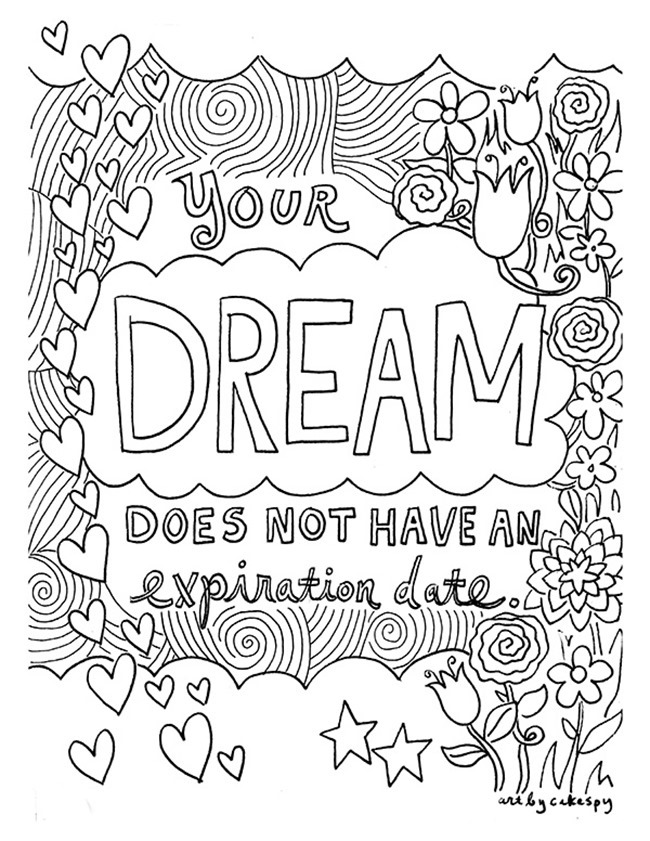
Pictures of the day

Zabriskie Point is an area in Death Valley National Park noted for its beautiful erosional landscape. It is called a badlands due to its difficult to traverse topography.
PICTURESQUE PADDLING
A man paddles his boat across the Baral River in Bangladesh. In winter, moss and algae become more visible in the water.
knit, Christmas

Frank
knit
thanks, Jennifer

Tonight pattern by Caoua Coffee
knit, 1 - 10 yrs
thanks, Eve

knit

Guernsey Textures Knit Hat and Scarf
knit

crochet, Christmas

Santa's Buddy
crochet
thanks, Clara
crochet
thanks, Doris

Fingal's Cave Scarf pattern by Annie Modesitt
crochet
Pop! Pop! Popcorn Crochet Snuggle Sack

crochet


RECIPE ... Christmas
thanks, Sam
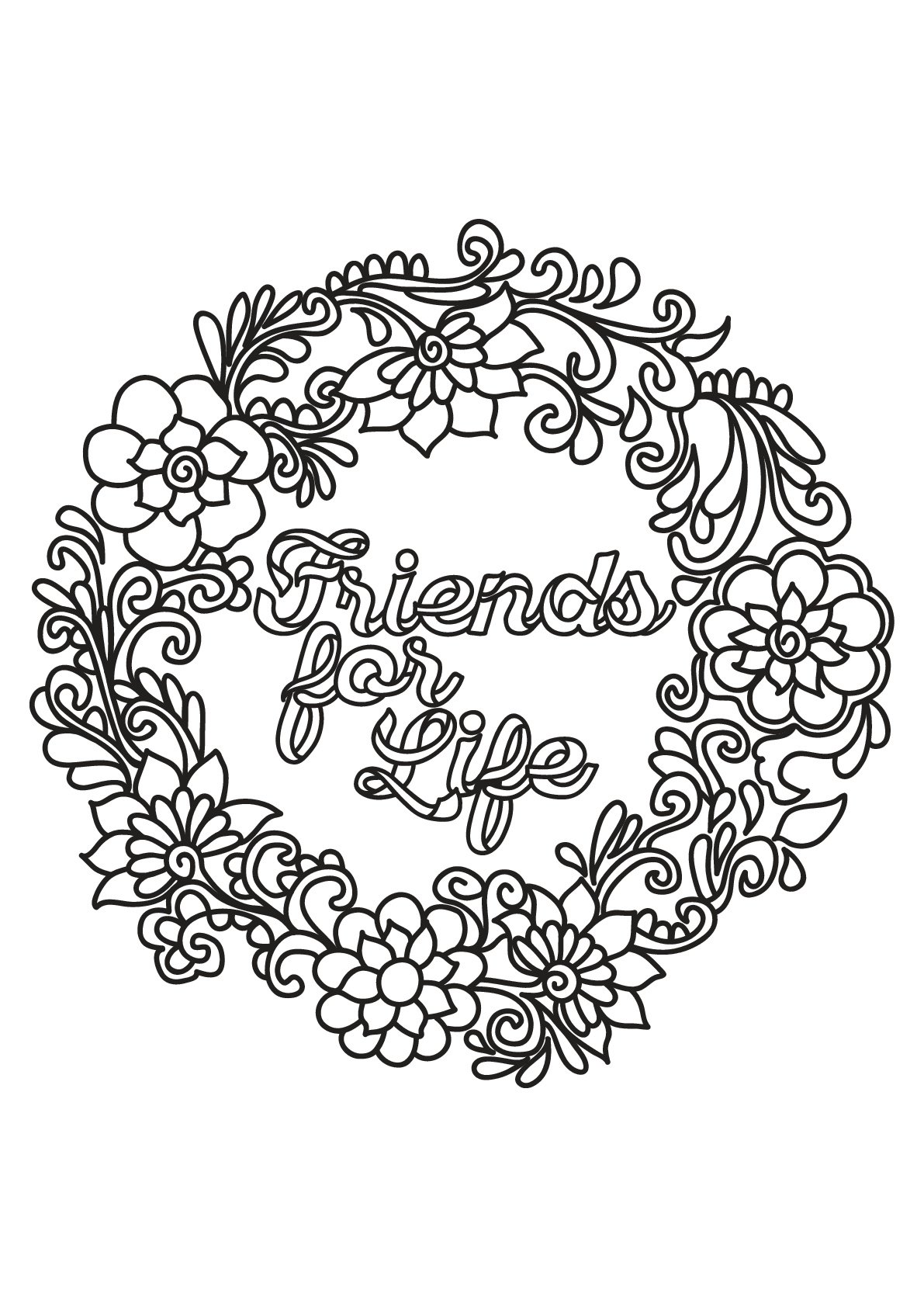
CROCKPOT RECIPE
thanks, Ida
thanks, Ida
SWEETS ... Christmas
thanks, Anita
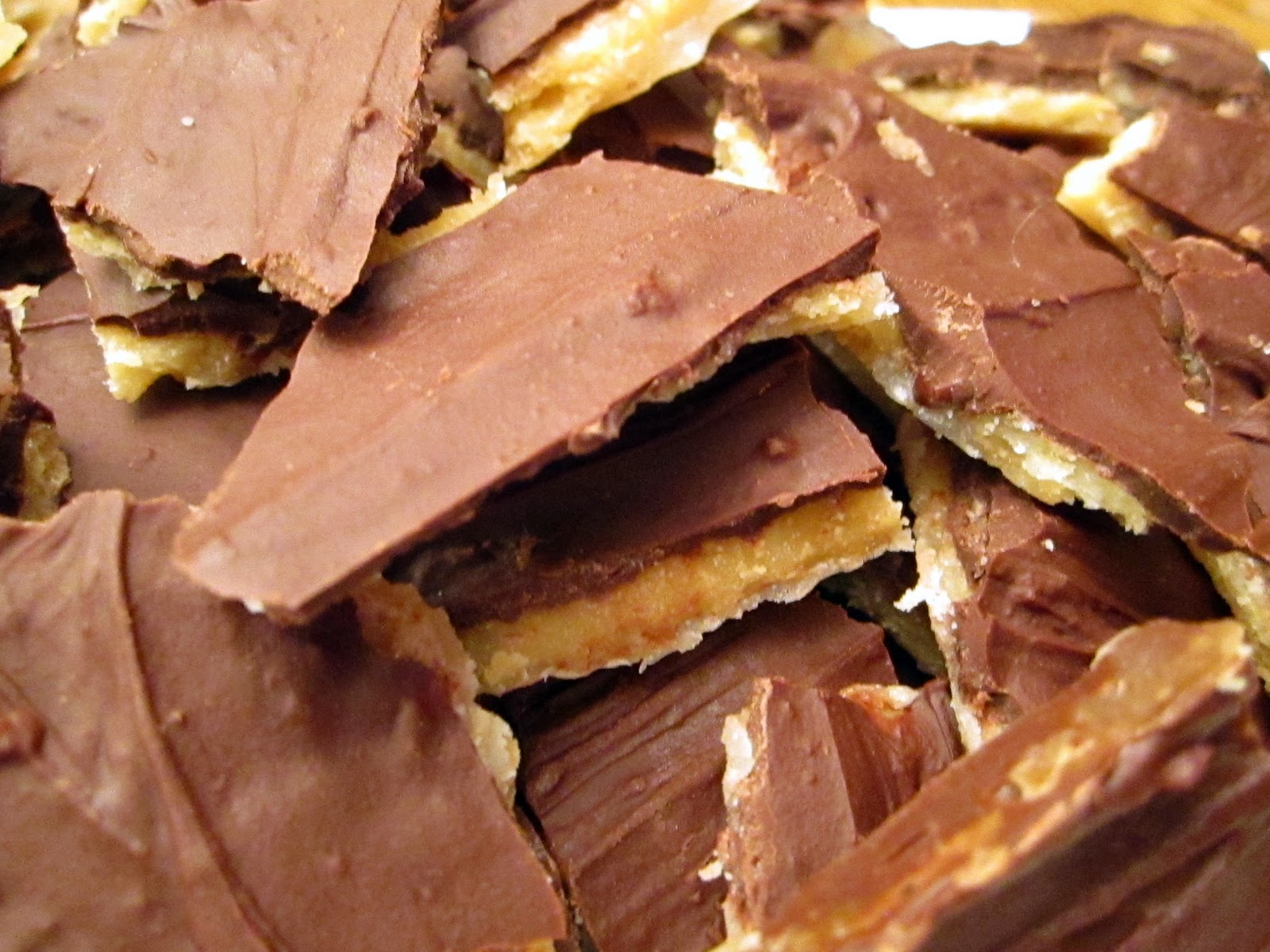
ADULT COLORING ... Christmas

CRAFTS ... Christmas
thanks, Lois
CHILDREN'S CORNER ... Christmas craft
thanks, Zoey
PUZZLE
WORD SEARCH
| bicker blood brutal cake caste circus common curve | delay does eager eats freak gather gore | heaven importance improve level mole nerve noise | passion pattern peep place rally range relay rescue route | score sleep spoke storm strain swim symbol trick wallflower warble |
SUDOKU ... hard
solution:
QUOTE



CLEVER
Got an ugly Christmas sweater party to go to?
Hot glue tinsel and git bows to make something spectacularly tacky.
EYE OPENER
thanks, Shelley
“ENOUGH IS BETTER THAN A FEAST”: CHRISTMAS DINNER IN THE TIME OF THE GREAT DEPRESSION
By Talia Lavin
A Christmas menu during the Depression would likely have featured a few simple dishes, with the possibility of “holiday fowl” as a main course.
Andrew Coe And Jane Ziegelman, A Husband-And-Wife Team Of Authors And Food Historians, Host Their Dinner Parties In A Broad Brooklyn Heights Kitchen Designed To Resemble A Nineteen-Thirties Schoolroom: Red Cupboards, Wood Counters That Groan With The Accumulated Weight Of Cookbooks. Although Coe And Ziegelman Once Co-Wrote A History Of Foie Gras, Their Latest Project Is “A Square Meal: A Culinary History Of The Great Depression,” A Thick Volume That Examines A Complex Decade In American Dining. On A Recent Evening, The Couple Prepared A Christmas Meal Demonstrative Of The Period’s Most Cutting-Edge Culinary Wisdom, Pieced Together From Depression-Era Radio Scripts Once Voiced By Aunt Sammy, The Sensible, Matronly Mascot Of The U.S. Bureau Of Home Economics.
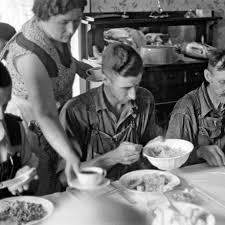
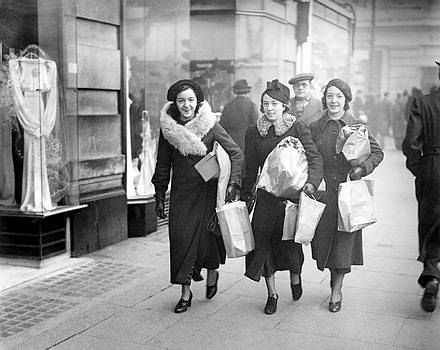


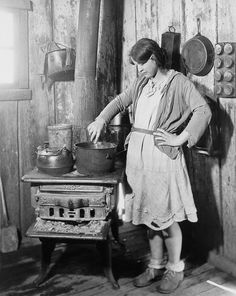
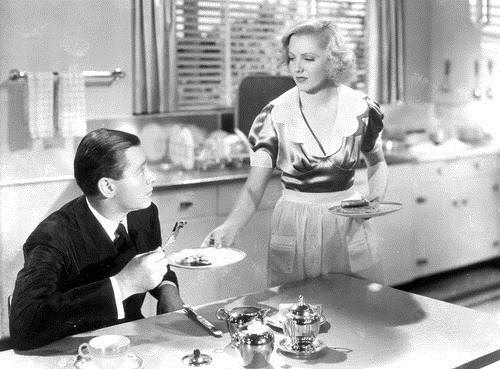
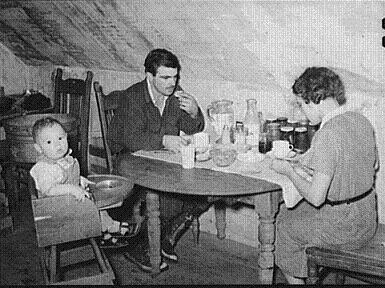
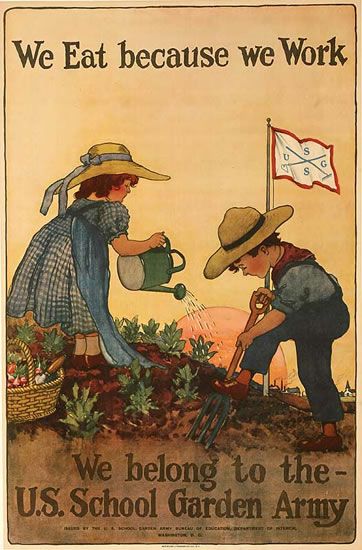
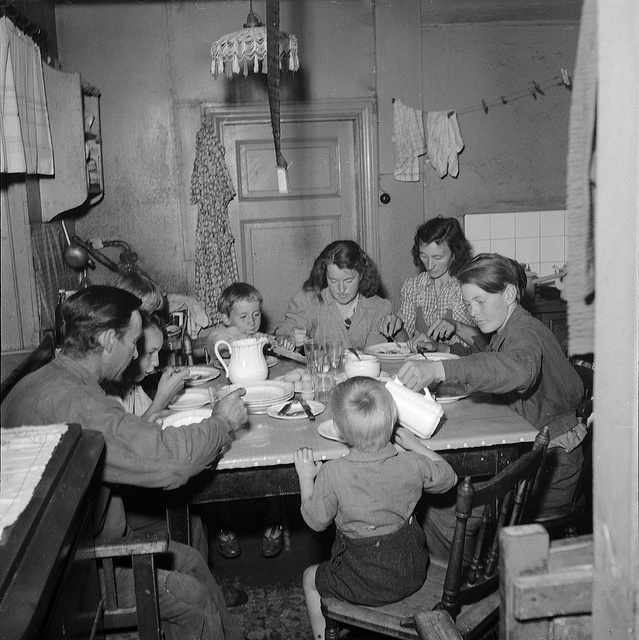
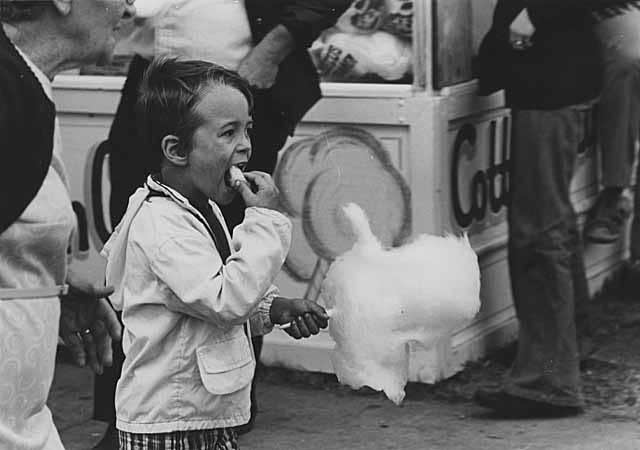
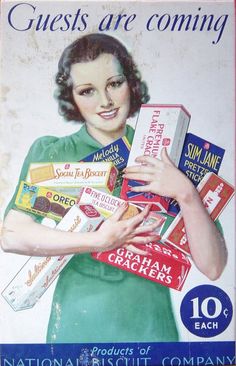
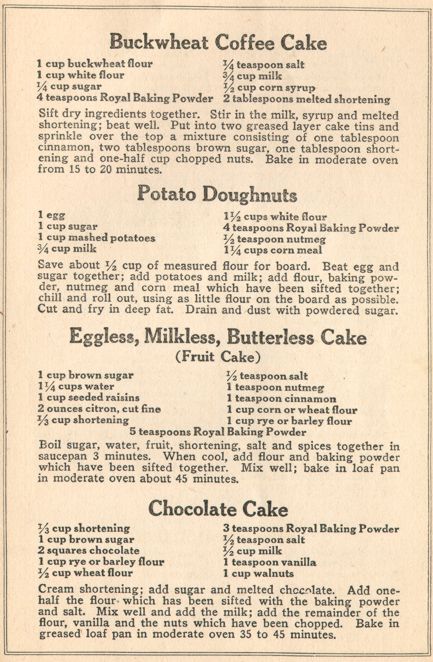 Depression Era Recipes from Taste of Home
Depression Era Recipes from Taste of Home
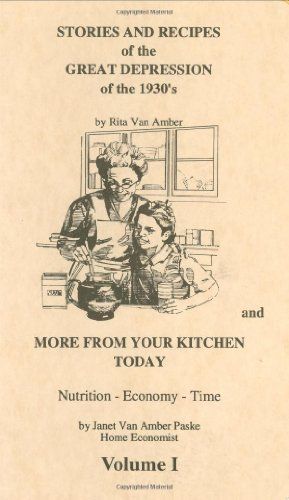
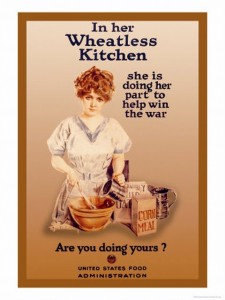
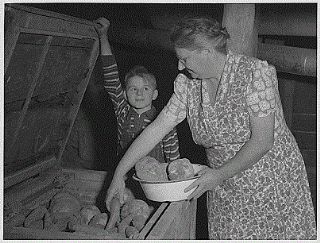
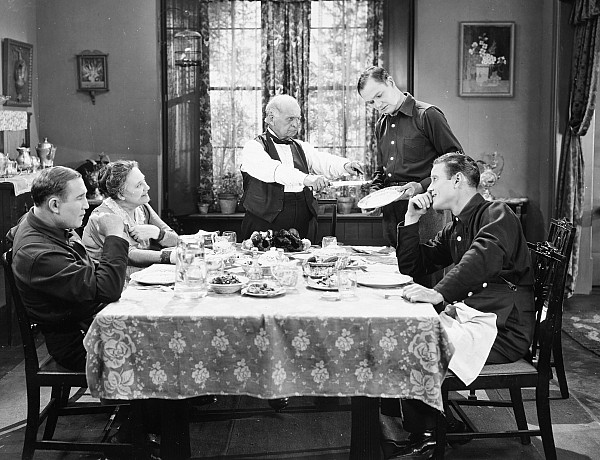
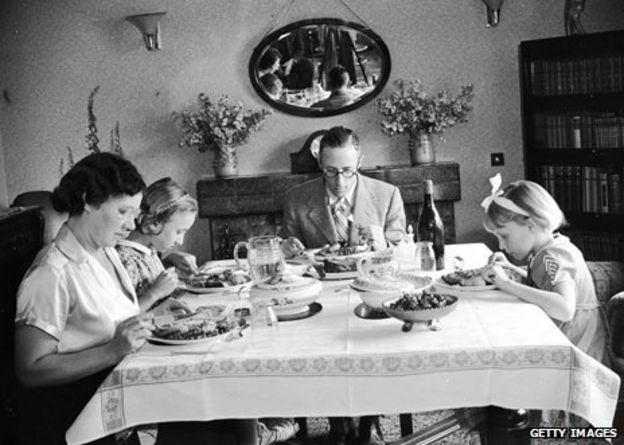
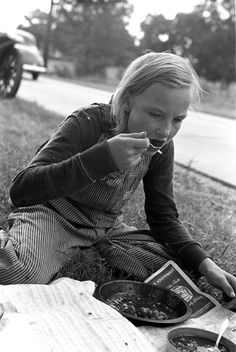
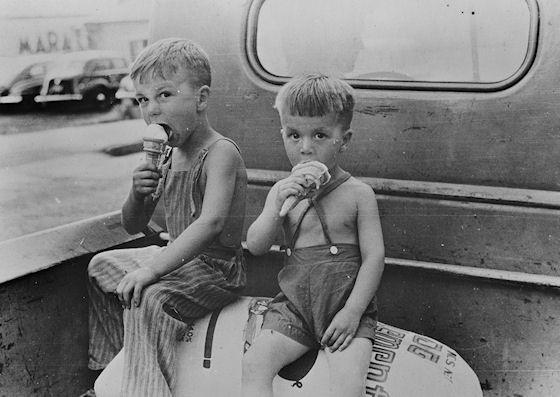
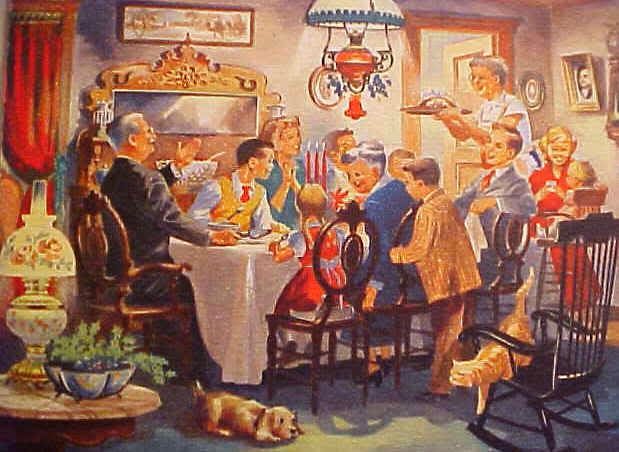

Coe, gray-haired and compact, spiked a pot of cider with a generous tot of apple-flavored moonshine. Ziegelman, equally petite and dressed primly in black, dipped into a fridge stocked with varicolored Mason jars to put together Aunt Sammy’s recommended appetizer: tomato juice topped with a sprig of curly parsley. This is typical Depression fare: easy on the stomach and on the homemaker, to be poured straight from a can, and, in deference to the festive day, holiday-colored in red and green. While the couple’s cat, Ruby, oversaw the proceedings, Ziegelman next threw together a simple creamed spinach, slicing fat slabs of butter with practiced ease.

The couple first crossed paths in the nineteen-eighties, when both were part of the raucous New York publishing scene. Their first date unfolded at Exterminator Chili, a since-shuttered downtown eatery, and then at a launch party for a sleazy thriller called “Panic Blood.” They married in 1996.
Coe’s interest in food history was first stoked in childhood; his mother, Sophie Coe, was an anthropologist and a food historian, and the author of the books “America’s First Cuisines” and “The True History of Chocolate.” Coe, who is one of five siblings, recalls a childhood spent clustered around a dinner table laden with exotic dishes, including the Chinese fare his father favored after a stint in Taiwan with the C.I.A. Coe’s own interest in that cuisine culminated in a book called “Chop Suey,” published in 2009, which explores the tumultuous cultural and culinary journey of Chinese food in America. (The couple’s eldest son, a student at Oberlin College, speaks Mandarin fluently.)

Ziegelman is the director of the culinary center at the Tenement Museum, and the author of “97 Orchard,” which explores the culinary traditions of five immigrant families in a New York tenement building at the turn of the twentieth century. Like Coe, she had already studied the food of poverty, what people ate when they didn’t have enough. The Depression was a natural topic to explore. The couple began research for “A Square Meal” in 2010.

In their kitchen, the tantalizing smell of duck with peanut stuffing—au courant in Depression years, and Coe told me that the peanut recipe may have originated with George Washington Carver—rose from the oven. Bureau of Home Economics-approved holiday menus often featured a few simple dishes, rather than the lush, elaborate repasts of earlier generations, but “holiday fowl” were often included in Christmastime food relief, even in the early, devastating days of the Depression. Aunt Sammy might have approved less highly of the Sicilian wine—white, to accompany the light fare—or of the moonshine-spiked cider, which flowed throughout the meal to accompany the conversation.

The couple’s seventh-grade son, Edward, groaned when his parents announced a Depression-themed dinner. This wasn’t his first encounter with nineteen-thirties cuisine. “My least favorite was the lima-bean loaf,” he said.

“Lima-bean loaf really wasn’t the worst,” Ziegelman said. “We made this one thing—”

“—a meat-based granulated jello with canned corned beef,” Coe said. “The whole apartment smelled like cat food.”

“I think they just had more of a tolerance for bad canned food back then,” Ziegelman said.

Loaves and casseroles were the centerpieces of Bureau of Home Economics cuisine: easy to make with cheap ingredients, and to spike with healthy but unlovable foods like canned meat, liver, or lima beans. The new approach—guided by the relatively new science of the calorie, and by a general zest for modern rationality of diet—emphasized thrift and health above enjoyment, and generally seemed to treat the notion of pleasurable food with suspicion. “Enough is better than a feast,” Aunt Sammy would say on her radio program, “Housekeepers’ Chat.”

Coe and Ziegelman researched their book separately, wrote alternating chapters, then edited each other’s contributions. From Ziegelman came a long and loving ode to rural housewives’ cooking in the decades prior to the Depression; from Coe, a dive into Herbert Hoover’s gilded disconnection from the starvation of the masses. “A Square Meal” is in some ways a curious work—a culinary history of privation—but the authors have created a compelling chronicle of both the suffering of the era and the ingenuity that arose in response, from the budget menus that newspapers printed to guide homemakers in cities to the barter economies that arose in the Midwest, where eggs could be traded for just about anything. It’s also a story of the White House, about the shift from Hoover’s cult of deprivation to the political vision—and shortcomings—of Franklin Delano Roosevelt. To Coe and Ziegelman’s credit, the stories of Americans like Rowena May Pope, who was threatened at gunpoint while foraging gooseberries along a railroad track, are treated with no less avid consideration than the intricacies of food policy, and all come together in a sweeping narrative of hunger and its consequences. “It’s just a huge topic: politics, and the country, and the city,” Coe said.
 Depression Era Recipes from Taste of Home
Depression Era Recipes from Taste of Home
On the table in Brooklyn, the two lay out the creamed spinach, duck, and a salad dressed with oil, vinegar, and red and green peppers. “A thrifty Christmas can be just as good and just as Christmassy as one planned with all the frills,” Aunt Sammy advised listeners in December of 1931. “Aunt Sammy was kind of a killjoy,” Coe told me. “I think there should be feast days and fast days. . . . And Christmas, Thanksgiving—they’re feast days.”

“I like Aunt Sammy. Her persona was kind of blunt, impolitic,” Ziegelman said. “The general idea was, ‘Grandma was wrong. We know better.’ You can kind of see it from the nineteen-thirties to the sixties.”
While Jane prepared handmade whipped cream to top dessert, Andrew showed me their office, a room lined with bookshelves and wobbly piles of books and papers: there are sections on Chinese food and on immigrant cuisines, and dozens of yellowed nineteen-thirties cookbooks rub shoulders with general culinary tomes in multiple languages, fat with knowledge of dish after dish.

The crowning, final glory of the Christmas meal was straight from the thin, browned pages of “Aunt Sammy’s Radio Recipes”: a takeoff on plum pudding made with raisins and the addition, of course, of gelatin.

“My mother used to prepare plum pudding a year in advance,” Coe said. “We used to have these rich, dark puddings—sometimes four, five years old, with dozens of ingredients.”

“This is easier,” Ziegelman said, removing the chilled mold from the fridge and filling a tray with hot water to loosen the pudding within.

After a few tries, the pudding was dislodged onto a black-and-white-spotted plate, a trembling ring running with milky juices. It tasted surprisingly pleasant—more chocolate mousse than raisin jello, with a snap of walnuts to add texture to each bite.

“I think people liked gelatin because it was a way of controlling food,” Ziegelman said, while Coe apportioned slabs of the pudding and dollops of whipped cream beside each. “It was a way of turning it from amorphous to manmade, geometric.”

Today’s food tastes share little in common with Aunt Sammy’s, Coe said. “She saw kitchen work as an adversary. Now everything’s supposed to be homemade—artisanal—slow.”

Edward, who loathes gelatin, declined the pudding, but ate his whipped cream quickly with a spoon and retired to his room. “In a way, we’re still rebuking Aunt Sammy,” Ziegelman said. “We’re still reacting against our parents—against what came before.”

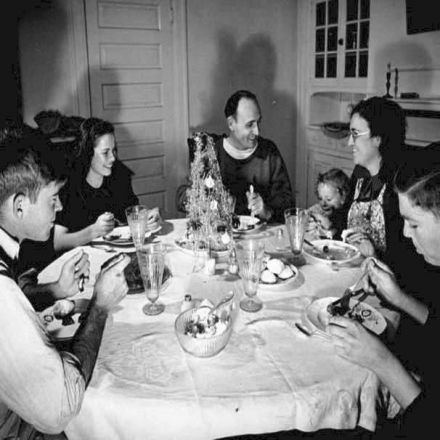
No comments:
Post a Comment